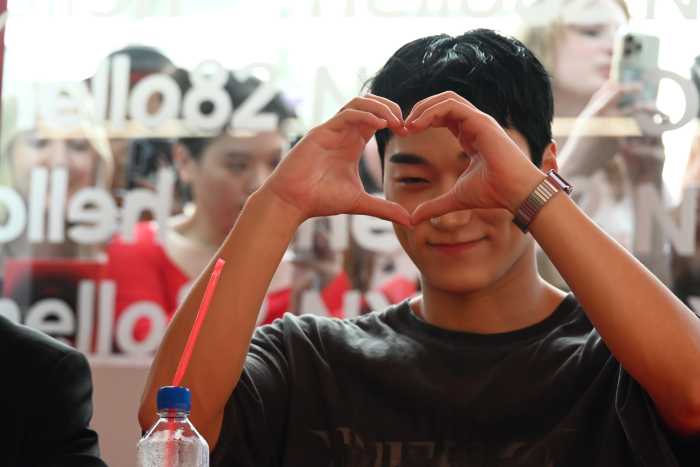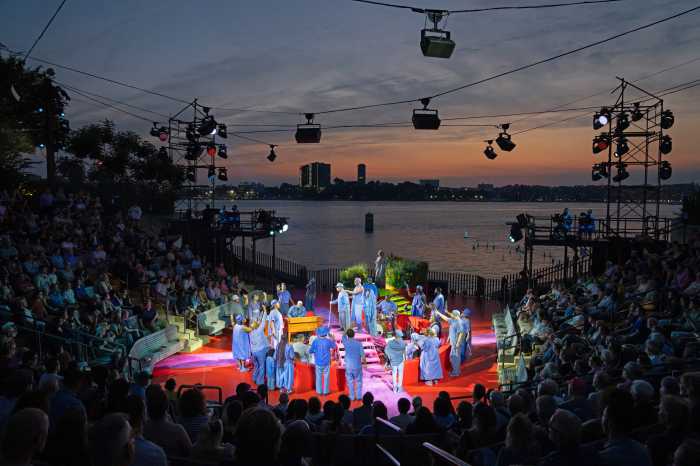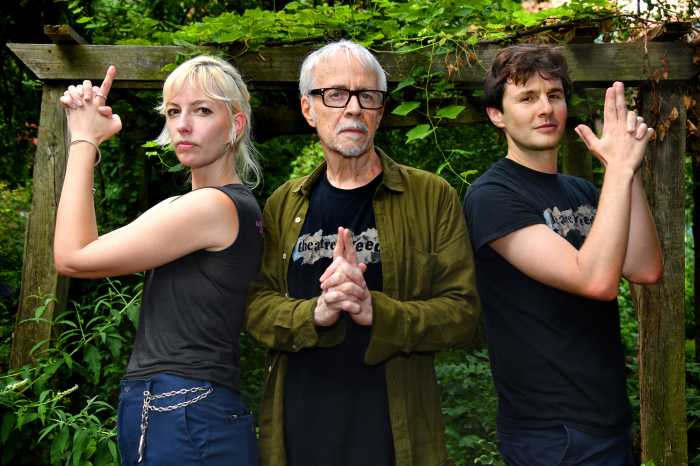You’d think making a film about a writer and the writing process would be the last thing a director would want to do. After all, what is it like to be a writer? You sit at your desk, pounding away at your computer or typewriter, or writing on a yellow legal pad. Hour after hour. Day after day.
Yawn.
Yet films about writers, both real and fictional, have been a staple of the cinema for decades. Which means there’s something else besides the writing process that attracts our attention.
“Examining the world of a writer in isolation is potentially dramatically inert,” says Michael Grandage, director of “Genius,” opening June 10 in Manhattan (on Long Island later this month). The film explores the volatile relationship between editor Maxwell Perkins and author Thomas Wolfe. “Writing is a very lonely profession,” Grandage says. “In order for a film to work, you have to have some interaction with someone else.”
The bottom line: Whether it’s real-life writers like Truman Capote or fictional ones like Barton Fink, the process of dealing with editors, money problems, you name it, is key. As is the writer’s own personality. “When we handle a book ourselves, all we have is the relationship between the book and us,” says Grandage, “and any film that examines how we get to the book is of interest. The films that work are because they investigate the personality of the writer.”
That said, here are 10 films about writers that really work.
THE LIFE OF EMILE ZOLA (1937) This best picture Oscar winner tells the story of the great 19th century French novelist (“Nana,” “Germinal”). It focuses on his involvement in the Dreyfus affair, which concerned a Jewish Army officer falsely convicted of espionage and sent to Devil’s Island. Zola’s very public denouncement of the Army high command and French politicians was exceedingly courageous.
SUNSET BOULEVARD (1950) Unsuccessful screenwriter William Holden winds up being a kept man, courtesy of faded silent-screen star Gloria Swanson. Hired as a script doctor for her abysmal “comeback” film, things turn ugly when he decides to return to his old newspaper job.
THE FRONT (1976) It’s the blacklist era in Hollywood and TV, and writers deemed unemployable because of their political beliefs are looking for “fronts,” people whose names they can use to sell their scripts. Woody Allen stars as one such person, a small-time bookie trying to help buddy Michael Murphy.
MY BRILLIANT CAREER (1979) Judy Davis stars in this Australian film about a headstrong young woman growing up in the Outback who longs to have a career as a writer. Despite strong opposition from her parents, she eventually succeeds. Based on a 1901 novel of the same name.
CROSS CREEK (1983) Mary Steenburgen stars as Marjorie Kinnan Rawlings, author of the children’s classic “The Yearling.” The film portrays her interaction with local residents in Florida, where she has purchased an orange grove, and which serves as the inspiration for her book.
BARTON FINK (1991) John Turturro plays a successful Broadway playwright who accepts a Hollywood screenwriting gig. But once in Tinseltown, and assigned to pen a wrestling film, he’s burdened with a severe case of writer’s block, aggravated by weird noises and a few strange characters he meets.
SHAKESPEARE IN LOVE (1998) Another best picture Oscar winner, this fanciful tale features Joseph Fiennes as The Bard, falling in love with Viola de Lesseps (Gwyneth Paltrow, best actress Oscar) while writing “Romeo and Juliet.” Judi Dench won a supporting actress Oscar for her portrayal of Elizabeth I.
WONDER BOYS (2000) Michael Douglas gives one of his best performances as a college professor unable to finish his second novel, while having an affair with the chancellor of his school (Frances McDormand). When his editor (Robert Downey Jr.) comes to town to see his new book, and becomes interested in a book one of his students (Tobey Maguire) has written, the you-know-what hits the fan.
ADAPTATION (2002) Giving new meaning to the term “meta,” Nicholas Cage stars as twin brothers, Charlie and Donald Kaufman. Charlie (the name of the real screenwriter) has been hired to write an adaptation of the hit Susan Orleans book “The Orchid Thief,” but when he realizes the book does not have a strong narrative, he develops a case of writer’s block. Chris Cooper won a supporting actor Oscar as the orchid-stealing protagonist of Orleans’ book.
THE HOURS (2002) Three women are interconnected through Virginia Woolf’s novel “Mrs. Dalloway” — a contemporary New Yorker (Meryl Streep), a 1950s housewife with an unhappy marriage (Julianne Moore) and Woolf herself (Nicole Kidman), struggling with depression while trying to finish her novel. Kidman won a best actress Oscar for her performance.
Two strokes of ‘Genius’
“Genius” tells the story of legendary book editor Maxwell Perkins (Colin Firth) and his relationship with larger-than-life North Carolina author Thomas Wolfe (Jude Law). Famous for his work with Ernest Hemingway (Dominic West) and F. Scott Fitzgerald (Guy Pearce), Perkins helps the untamed Wolfe shape his massive manuscripts into the best-selling novels “Look Homeward, Angel” and “Of Time and the River.” The latter, which starts out as a 5,000 page whopper, takes more than two years of editing to whip into shape, which puts a strain on the relationships between Perkins and his wife (Laura Linney) and Wolfe and his lover (Nicole Kidman).
Eventually, however, the book, which Wolfe magnanimously dedicates to his editor, proves to be a critical and commercial success. But Wolfe, seemingly upset that some observers are giving Perkins too much credit for his fame, contemplates going to another publisher. The film ends with Wolfe’s death at age 37 from a brain disease, after he has written a moving letter to Perkins acknowledging all the editor has done for him.
“This isn’t a movie about a writer, it’s about the relationship,” says “Genius” director Michael Grandage. “The writing process has been done, and you open that process to the next stage, and that’s the other person, the tension, the relationship, and that’s filmic. [Wolfe and Perkins] were extremes, and sometimes opposites attract. You actually want in the cinema something to engage with, and the size of the personality is a way in. And Wolfe was outsize in shape, his egocentric nature, every part was extreme.”
— LEWIS BEALE




































